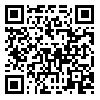Volume 10, Issue 1 (volume10, Issue 1 2022)
CPJ 2022, 10(1): 39-51 |
Back to browse issues page
Download citation:
BibTeX | RIS | EndNote | Medlars | ProCite | Reference Manager | RefWorks
Send citation to:



BibTeX | RIS | EndNote | Medlars | ProCite | Reference Manager | RefWorks
Send citation to:
Dadjoo M, Gharibzadeh S. The Developmental Trajectory of Socio-emotional Tendencies in the Iranian Preschoolers Children. CPJ 2022; 10 (1) : 51
URL: http://jcp.khu.ac.ir/article-1-3443-en.html
URL: http://jcp.khu.ac.ir/article-1-3443-en.html
Institute for Cognitive and Brain Sciences, Shahid Beheshti University , s_gharibzade@sbu.ac.ir
Abstract: (6412 Views)
Socio-emotional development is one of the fundamental bases of individual and social health. The present study aims to investigate the developmental trajectory of socio-emotional tendencies (SET) and its components in preschoolers. Our sample was 447 healthy Iranian preschoolers (girl=47.4%) aged 48-78 month-old (mean=66.57, SD=6.79). they were from Tehran, Bandar Abbas, Mashhad, Zarand, and Tabriz as the representative provinces of the Iranian population, based on the geographical distribution and socioeconomic status. We used the Persian version of the Kindergarten Inventory of Social-Emotional Tendencies (KIST) which consists of six components. It included hyperactivity-maladaptive behavior, social skills, communication skills, daily living skills, eating behavior, and separation anxiety symptoms.
We used Kruskal-Wallis test to investigate the developmental trajectory of SET. Results showed that there were significant changes in daily living skills and separation anxiety symptoms during 6-month periods, meanwhile there were no significant changes in the other four components and SET in total. Then, the Games-Howell post-hoc test was performed to follow up the observed differences among age categories. Results of the present study showed that SET doesn’t change significantly in early childhood. It propose that the critical period of the socio-emotional ability development occurs sooner or later
We used Kruskal-Wallis test to investigate the developmental trajectory of SET. Results showed that there were significant changes in daily living skills and separation anxiety symptoms during 6-month periods, meanwhile there were no significant changes in the other four components and SET in total. Then, the Games-Howell post-hoc test was performed to follow up the observed differences among age categories. Results of the present study showed that SET doesn’t change significantly in early childhood. It propose that the critical period of the socio-emotional ability development occurs sooner or later
Article number: 51
Keywords: Preschoolers children, socio-emotional tendencies, early childhood, developmental trajectory
Type of Study: Research |
Subject:
psychology of human behavior
Received: 2021/06/14 | Accepted: 2021/08/22 | Published: 2022/02/6
Received: 2021/06/14 | Accepted: 2021/08/22 | Published: 2022/02/6
Send email to the article author
| Rights and permissions | |
 |
This work is licensed under a Creative Commons Attribution-NonCommercial 4.0 International License. |





